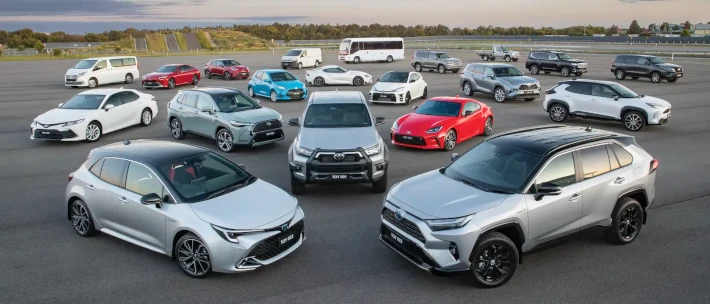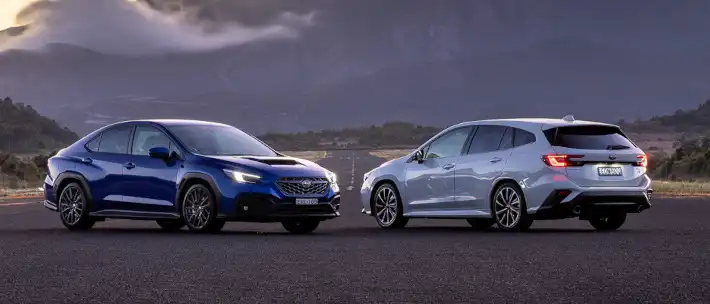The mechanical simplicity of an electric vehicle means that it can offer some serious savings over its internal combustion counterparts when it comes time to servicing.
That said, you may be on the hook for an extremely large bill if you hold onto your electric vehicle for a long time, or you're buying a used EV that needs to have its battery replaced.
Let's take a look at exactly what makes a battery degrade and fail over time, unpack some key details about manufacturer warranties and explore just how much it costs to replace a battery on some of the most popular EVs on sale in 2025.
Why Do EV Batteries Degrade and Fail?
Batteries big and small degrade over time - it's just a fact of life in the world of technology.
Cells and components within an electric vehicle's battery age over time and struggle to both hold onto and discharge electricity at the same rate they were capable of when they were fresh off the factory floor.
Whether we're talking about lithium-iron phosphate (LFP), nickel manganese cobalt (NMC) or the emerging world of sodium-ion batteries, the simple fact is that these battery chemistries will, over an extended number of charge cycles, degrade.
The symptoms of a degrading battery can vary from limited range, longer or inconsistent charging times, power fluctuations or those dreaded error codes.

How Much Does it Cost to Replace a Battery in an Electric Vehicle?
In much the same way that your smartphone’s battery life will diminish over many charge cycles, an EV's range may drop to the point that replacing the battery pack might make sense.
But how much will you be on the hook for?
Well, the answer is highly dependent on the size and chemistry of your EV's battery pack, as well as the current price of battery cells.
According to the latest S&P Global Mobility report, the average price for lithium-iron phosphate (LFP) cells in 2024 was around AUD $86.24 per kWh of capacity, with the average price of nickel-manganese-cobalt (NMC) cells sitting at AUD $154.
-
LFP Battery Cell Price per kWh: AUD $84.24
-
NMC Battery Cell Price per kWh: AUD $154

With those numbers in mind, we can map out some rough estimates of how much it would cost to replace a wide range of battery packs.
Please note that these figures are an estimate for the raw materials of a battery pack, rather than the finished product.
This means that our prices listed below do not factor in additional costs for the assembly of the battery pack and installation, which will likely be higher than what we've laid out here; all prices are in AUD.
-
50kWh LFP Battery Replacement: $4,212
-
64kWh LFP Battery Replacement: $5,391
-
80kWh LFP Battery Replacement: $6,739
-
100kWh LFP Battery Replacement: $8,424
-
50kWh NMC Battery Replacement: $7,700
-
64kWh NMC Battery Replacement: $9,856
-
80kWh NMC Battery Replacement: $12,320
-
100kWh NMC Battery Replacement: $15,400
Battery Replacement Costs for Popular Electric Vehicles in Australia
Using the price formula we’ve mapped out above, we can give you some rough estimates as to how much it would cost to completely replace the battery pack of some of Australia's best-selling EVs.
Keep in mind that these remain a rough estimate that, as we move into the future, will likely become more affordable as new battery technologies emerge and continue to drop prices.
Get in touch with one of our Car Buying Specialists today.
Request a quoteFor now, let's take a look at how much it would cost to replace the battery of the ten best-selling electric vehicles currently on sale in Australia in 2025.
Tesla Model Y
-
Battery Type: LFP & NMC
-
Battery Size: 62.5 - 80kWh (Standard vs Long Range)
-
Standard Range Replacement Cost at Current Price per kWh: $5,265
-
Long Range Replacement Cost at Current Price per kWh: $12,320
Tesla Model 3
-
Battery Type: LFT & NMC
-
Battery Size: 60 - 79kWh (Standard vs Long Range)
-
Standard Range Replacement Cost at Current Price per kWh: $5,054
-
Long Range Replacement Cost at Current Price per kWh: $12,166
MG 4
-
Battery Type: LFP & NMC
-
Battery Size: 51 - 64 - 77kWh
-
Standard Range Replacement Cost: $4,296
-
Medium & Long Range Replacement Cost: $9,856 - $11,858
Kia EV5
-
Battery Type: LFP
-
Battery Size: 64.2 - 88.1kWh
-
Standard Range Replacement Cost: $5,391
-
Long Range Replacement Cost: $7,413
BYD Sealion 7
-
Battery Type: LFP
-
Battery Size: 82.56kWh
-
Replacement Cost: $6,907
BYD Atto 3
-
Battery Type: LFP
-
Battery Size: 49.92 - 60.48kWh
-
Standard Range Replacement Cost: $4,127
-
Long Range Replacement Cost: $5,054
MG ZS EV
-
Battery Type: LFP
-
Battery Size: 50.3 - 72kWh
-
Standard Range Replacement Cost: $4,212
-
Extended Range Replacement Cost: $6,065
BMW iX1
-
Battery Type: NMC
-
Battery Size: 65kWh
-
Battery Replacement Cost: $10,010
BYD Seal
-
Battery Type: LFP
-
Battery Size: 61 - 82kWh
-
Standard Range Replacement Cost: $5,138
-
Extended Range Replacement Cost: $6,065
Kia EV3
-
Battery Type: NMC
-
Battery Size: 58.3 - 81.4kWh
-
Standard Range Battery Replacement Cost: $8,932
-
Extended Range Replacement Cost: $12,474
What is the Manufacturer's Warranty for an Electric Vehicle Battery?
Most manufacturers producing electric vehicles today package their EVs typically with a five-year warranty for the car itself, while the battery and high-voltage components are backed by an eight-year warranty here in Australia.
Some manufacturers even offer firm warranties when it comes to capacities and battery degradation, so be sure to take a closer look at these details when shopping around for electric vehicles.

Will a Battery Need Replacing During the Life of an Electric Vehicle?
The need to replace the battery pack of an electric vehicle depends largely on the year it was manufactured, the number of kilometres driven, and even things like the climate you're living in; with lithium-ion batteries disliking cold temperatures.
Manufacturers say that their current electric vehicles have lifespans of anywhere between 15-20 years, while the batteries themselves have a one- to two-decade lifespan, depending on their usage.
The latest range of electric vehicles has high-capacity lithium-ion battery packs that are said to retain up to 90 per cent of their capacity after driving around 150,000km, showing that the latest battery tech has come a long way when it comes to battery degradation.
How to Prevent Battery Degradation in an EV
There are a few simple things you can do to optimise the efficiency and lifespan of the lithium-ion battery pack powering your electric vehicle, these include:
-
Avoid the charge dropping below 20%
-
Capping your charges at 80%
-
Avoid extreme heat and cold
-
Moderate your use of DC fast-chargers
-
Avoid heavy throttle inputs
-
Allow the battery pack to cool down (or warm up) before charging
-
Install the latest software updates that precondition and monitor the battery health

FAQ: How Many Years will an EV Car Battery Last?
Much like a typical engine, it’s impossible to say exactly how many years an EV's battery pack will last, though the consensus is a lifespan of ten to twenty years, depending on how many kilometres are driven, charging habits and external factors like hot and cold weather.
FAQ: Can You just Replace a Battery in an Electric Car?
Yes, if circumstances dictate, and your electric vehicle isn't efficiently holding or discharging electricity, you can replace just the electric battery in your car without needing to replace other major components.
While swapping batteries, you may need to replace certain weather-proofing elements of the pack assembly.
Request a Quote
If you're looking to make the switch to a battery-electric vehicle, be sure to reach out to one of our automotive specialists who can help find your dream car at the best possible price.
Get in touch with one of our Car Buying Specialists today.
Request a quote







